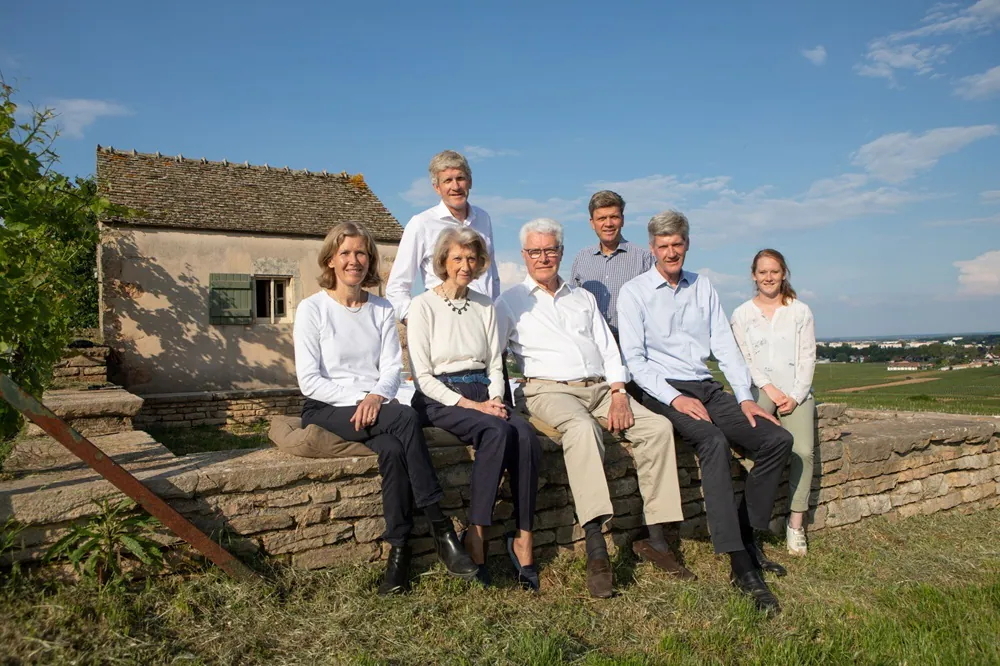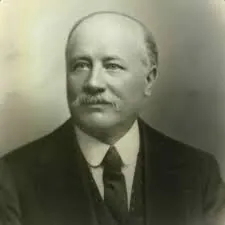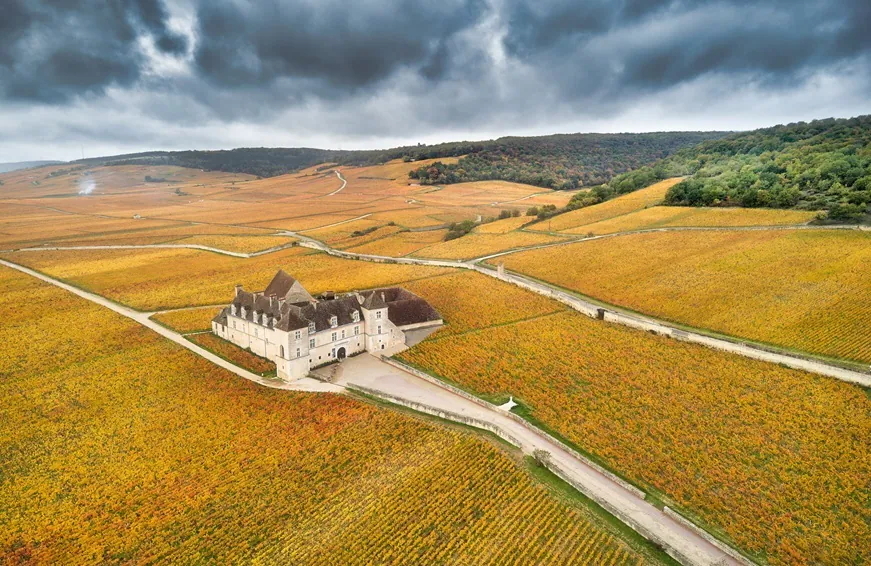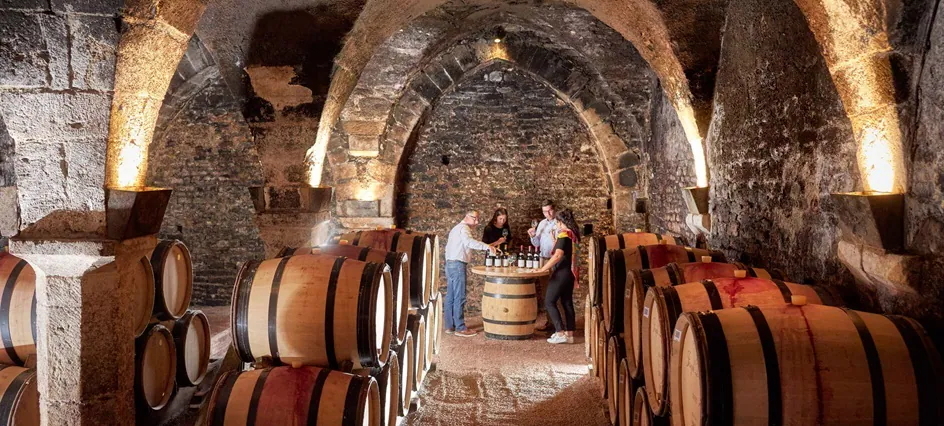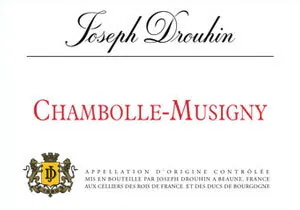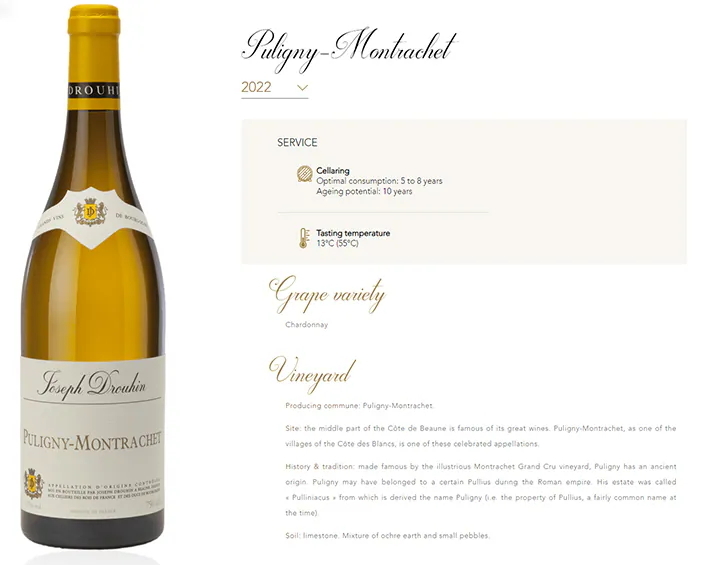
Maison Joseph Drouhin was founded in 1880 by Joseph Drouhin. At the age of 22, he arrived in Beaune from Chablis to establish himself as a wine merchant, purchasing grapes or grape must from growers to vinify and bottle wine. In that era, some Beaune merchants blended wines from across Burgundy and even the Rhône Valley, tarnishing the reputation of local wines. His son, Maurice Drouhin, took issue with these multi-regional blends sold under Burgundy labels. Following his father's death in 1918, Maurice took charge of the family business and initiated a series of reforms. In 1935, he participated in establishing the Institut National des Appellations d’Origine (INAO), the body that ultimately created France's appellation d'origine contrôlée (AOC) system. Concurrently, Maurice began acquiring vineyards, including the renowned Premier Cru Clos des Mouches and parcels within the Clos de Vougeot, to establish family-owned estates and exert greater control over wine quality.
During this period, the estate became the exclusive distributor for Domaine de la Romanée-Conti (DRC) in the French and Belgian markets. This coincided with the height of German occupation during the Second World War. Maurice ingeniously concealed numerous bottles of DRC alongside his own wines. He constructed a wall within the cellar, hiding the precious vintages behind it, while his son gathered cobwebs to make the wall appear aged over many years. The family also devised a plan to bottle inferior wines under the estate's label for shipment to Nazi Germany, reserving the finest vintages for local consumption. However, the Nazis eventually uncovered this scheme and dispatched a wine expert to oversee production in the region. By a fortunate coincidence, this German wine specialist happened to be a close friend of the family, enabling them once again to safeguard their most prized wines in secrecy.
However, Maurice's involvement in the Resistance eventually drew the attention of the German forces. At the time, he was still serving as Mayor of Beaune when the Gestapo came to arrest him. He managed to escape, making his way through Beaune's underground cellars by candlelight until he reached the Hospices de Beaune. The nuns sheltered Maurice there for several months until Beaune was finally liberated. After the war, the region and many estates suffered severe damage from the prolonged occupation, leaving many struggling to recover. Fortunately, through the family's tireless efforts, the estate was passed on to the next generation. Like his father, Robert Drouhin recognised the terroir's value and began expanding the estate by acquiring parcels in the Côte de Nuits and Chambolle-Musigny. In 1968, he acquired nearly 100 acres of unplanted land in Chablis, extending the estate's reach to the Drouhin family's ancestral home and paying homage to his grandfather. This decision laid the foundations for the scale of Joseph Drouhin's future estate and established the reputation that would define the house thereafter.

Joseph Drouhin

Region

Joseph Drouhin ranks among the foremost wine dynasties
France's Mouton in Bordeaux, Spain's Vega Sicilia, Germany's Egon Müller, Italy's Sassicaia – these world-renowned premier estates are all members of the international organisation Primum Familiae Vini. France's Joseph Drouhin stands alongside them, representing Burgundy as its sole representative.
Joseph Drouhin ranks among Burgundy's five classic négociants, alongside Jadot, Latour, Chanson and Bouchard. With nearly 140 years of history, it stands as Beaune's largest and most renowned estate!

Today, the estate is led by the fourth generation of the family: Philippe, Véronique, Laurent and Frédéric Drouhin jointly manage the operation. With over 193 acres of vineyards, the estate encompasses 96 acres in Chablis, 89 acres in the Côte d’Or, and 8 acres in the Côte Chalonnaise. Sixty per cent of the estate's vineyards are classified as Premier Cru or Grand Cru (reaching 90% in the Côte d'Or), planted with Burgundy's two principal grape varieties: Pinot Noir and Chardonnay. However, Laurent, the estate's Export Director, states: "Wine is not about the estate, it is about the people. We don't make Pinot Noir or Chardonnay; we make terroir wines. The truth lies in the glass."

To date, the vineyard management remains pesticide-free and certified organic and biodynamic (also Burgundy's largest biodynamic estate). The family has always adhered to the principle: ‘Solve nature's problems with nature's methods.’ The vineyards are ploughed using horses, grass is cultivated between the vines, natural compost and herbal infusions are employed, and natural predators are introduced for pest control. Furthermore, all vine cuttings are propagated in the estate's own nursery to preserve genetic heritage, making it a model of Burgundian family tradition.
Supply: this wine comes from grapes and musts purchased from supply partners according to rigorous specifications.
Harvest: grapes harvested by hands in open-work crates. If necessary, a careful sorting is proceeded.
Vinification: slow pressing in a pneumatic press. The juice of the last press is separated from the free run-juice. The juice is transferred into wine barrel after a little settling.
Ageing: the alcoholic fermentation as the malolactic and the ageing are being processed in oak barrels. The proportion of new barrels is around 20%.
The ageing lasts between 14 to 16 months. Origin of the wood: oak grown in French high forest.
Tasting: A wine of great finesse, distinguished and elegant. The colour is pure and bright, with light glints of white gold. The aromas evoke trees in bloom and white flesh fruit, like white peaches. With age, the aromas evolve towards almond and lightly grilled dried fruit. On the palate, there is a sensation of fresh silkiness. Long and persistent in the aftertaste, ending on an exceptional wealth of flavours, both floral and fruity.
Rating
James Suckling 94
Very polished, elegant and subtly fruity, with mineral and toast accents that grow on the palate and linger in the finish. Light to medium in body, with a bit of grip from acidity in the texture.
Wine Advocate 90
Offering up aromas of white peach, apple blossom and freshly baked bread, the 2022 Puligny-Montrachet Village is medium-bodied, ample and satiny, with lively acids and a pretty, fine-boned profile.





